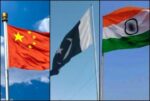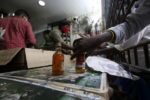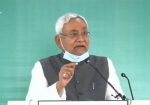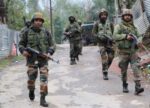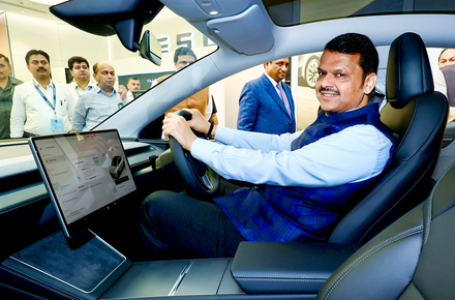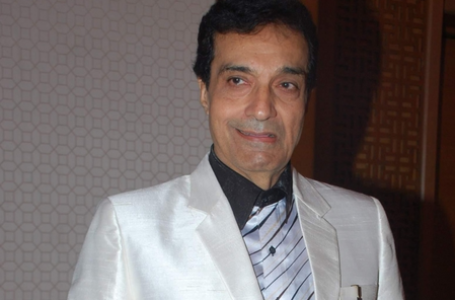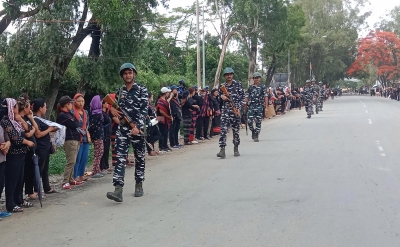
At a time when the sensitive border state of Manipur, with a population of around 3.5 million, is already facing internal divisions and even communal cleavages, the political situation in neighbouring Myanmar, with the near civil war-like situation since the military takeover of February 2021, has added to the complexity of the crisis.
The coup by the ‘Tatmadaw,’ the military leadership of the Myanmar grand army, and overthrow of the democratically elected government on February 1, 2021 has seen a steady inflow of refugees into Manipur and other north-eastern states, particularly Mizoram.
Ahead of Union Home Minister Amit Shah’s visit to Imphal on Monday, May 29, fresh violence erupted across several parts of the state, during which houses were burnt and tensions escalated after security forces confronted and exchanged fire with the miscreants, who were identified as ‘Kuki militants.’
Addressing a press conference on Sunday afternoon, Manipur Chief Minister N. Biren Singh strongly condemned the act of Kuki militants and labelled them as terrorists. Addressing The CM said that troops from the combined forces, including army and paramilitary personnel, had intensified operations against the suspected militants and had shot down around 40 Kuki militants who had tried to set ablaze abandoned houses and fire indiscriminately on general public.
Violence and arson erupted across parts of Manipur after a ‘Tribal Solidarity March,’ on May 3, called by the All-India Students’ Union of Manipur to oppose the demand for inclusion of the Meitei community in the Scheduled Tribe category. The march, from Churachandpur to Imphal, was followed by widespread violence, arson, looting and murder, between communities, a feature unseen during previous phases of militancy and unrest in Manipur.
In fact, this current phase of unrest surfaced in Manipur since February, 2023, when the BJP-led state government launched an eviction drive seen as targeting a specific tribal group. The drive led to protests but not on the scale of the one on May 3 triggered by the Manipur High Court’s direction to the State government to pursue a 10-year-old recommendation to grant Scheduled Tribe (ST) status to the non-tribal Meitei community.
According to informed analysts, many of Manipur’s problems stem from the geography of the state: The Imphal Valley at the centre is surrounded by forested hills. Four highways allow the valley access to the outside world. The valley, which comprises about 10% of Manipur’s landmass, is dominated by the non-tribal Meiteis, who account for more than 64% of the state’s population and send 40 of Manipur’s 60 MLAs. The hills, comprising 90% of the geographical area, are inhabited by more than 35% of the recognised tribes, but send only 20 MLAs to the Assembly. While a majority of Meiteis are Hindu, followed by Muslims, the 33 recognised tribes, broadly classified into ‘Any Naga tribes’ and ‘Any Kuki tribes’ are largely Christian.
Over the past month, several leaders and civil society groups have made efforts to end the violence and clear the narrative around the Meiteis and the Christian tribal communities. K.Vanlalvena, Rajya Sabha MP from Manipur, wrote to the Prime Minister seeking a ‘joint parliamentary team,’ including Christian MPs, be constituted and sent to the affected areas for an independent investigation. The MP also stated that the initiation of the violence was not a spontaneous burst of outrage by one community, but “a calculated and pre-meditated move on the part of the perpetrators to specifically target the Christian community, including the local Meitei Christian community of Imphal.”
While exact figures are not available, the ethnic violence in the Manipur this month has displaced over 40,000 people. An official toll of those killed and injured and a community-wise breakdown of the victims is not available. About 500 personnel of the Rapid Action Force, a specialised unit to handle riots, have been deputed to the state, where they have joined 55 columns of the Indian Army and the paramilitary Assam Rifles, and the state police to control the violence. Hundreds of houses, churches, temples, and vehicles have either been vandalised or set ablaze mostly across five districts: Imphal, Churachandpur, Bishnupur, Kangpokpi, and Tengnoupal.
Some analysts in Manipur claim that some tribal groups, with vested interests particularly in poppy cultivation, are trying to scuttle CM Singh’s crusade against drugs and destroying poppy fields. They claim that the Kuki-Zomis (tribal groups with close linkages in neighbouring Mizoram) have mostly been leading the protests that have erupted in the state. They claim that “illegal settlers” from Myanmar – with close ethnic relations to the Kuki-Zomis of Manipur and Mizoram – have been clearing forests and government lands to grow opium and cannabis. Some estimates suggest that the financial yield from poppy cultivation far exceeds the state’s official revenues.
Home Minister Shah will have to negotiate a complex set of economic and ethnic issues and aim for a long term resolution of the various divisions that have fuelled the current crisis during his three day visit to Imphal and surrounding areas.
Given this situation, the situation in Myanmar assumes great importance. India shares a land border over 1600 kms, where a Free Movement Regime exists. Myanmar’s maritime proximity to the Andaman and Nicobar islands, especially as a gateway to Southeast Asia, and the Kaladan Multi Modal Transport project, to connect the North-East and maintain and Indian strategic presence in the wake of expanding Chinese influence in the country are additional vital interests. The inauguration of the Sittwe port on May 9 is of special significance to India.
Worryingly, several militant groups from the North-East have a presence in the Sagaing Region of Myanmar, and could stoke some fires in the Manipur crisis.
Given these factors, India has chosen a pragmatic policy of engaging with whichever government is in power in Myanmar, regardless of how it assumed control or whether it has the support of the people. Senior General Min Aung Hlaing (who heads the State Administrative Council, or civilian face of the Tatmadaw administration) personally attended an event to celebrate 75 years of diplomatic relations between India and Myanmar, at the Indian Embassy in Yangon on May 14.
Myanmar is at the heart of the ‘golden triangle’ of narcotics smuggling, with a clear spillover into north-eastern states like Manipur. Additionally, a recent report; “The Billion Dollar Death Trade: The International Arms Networks that Enable Human Rights Violations in Myanmar;” released by Tom Andrews, the UN Special Rapporteur on the situation of human rights in Myanmar, indicates that Indian public and private sector firms are continuing to supply arms to the Myanmar military.
Is this deadly cocktail of narcotics and arms adding fuel to the internal schisms spreading across Manipur?



 by Nilova Roy Chaudhury
by Nilova Roy Chaudhury

